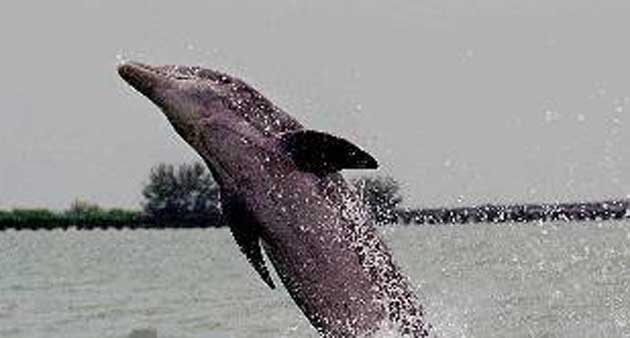Hi-tech 'pinger' to save dolphins from fishing nets

Your support helps us to tell the story
From reproductive rights to climate change to Big Tech, The Independent is on the ground when the story is developing. Whether it's investigating the financials of Elon Musk's pro-Trump PAC or producing our latest documentary, 'The A Word', which shines a light on the American women fighting for reproductive rights, we know how important it is to parse out the facts from the messaging.
At such a critical moment in US history, we need reporters on the ground. Your donation allows us to keep sending journalists to speak to both sides of the story.
The Independent is trusted by Americans across the entire political spectrum. And unlike many other quality news outlets, we choose not to lock Americans out of our reporting and analysis with paywalls. We believe quality journalism should be available to everyone, paid for by those who can afford it.
Your support makes all the difference.Conservationists in Cornwall are planning to use a hi-tech sonic device in a battle to save the last group of bottlenose dolphins to swim in English waters.
The dolphin group, or pod as it is known, is well known for swimming alongside people off the Cornish coast. But its population has dwindled to a dangerously low number of six, a dramatic fall since 1991 when the number stood at 18.
Wildlife experts fear that the loss of another one or two from the genetically unique group would spell its end. And so they are hoping to introduce pioneering "pinger" devices to trawlers. The devices emit a signal designed to drive the dolphins clear of the fishing nets.
The South-west is suffering from a record high number of strandings of cetaceans, mainly common dolphins and porpoises. Last month a study by the University of Exeter and Cornwall Wildlife Trust revealed that until the 1980s, about 50 dolphins and porpoises were found on beaches in an average year. Since 2000 the figure has climbed to between 100 and 250 a year, with about 60 per cent believed to be the victims of bycatch in the fishing industry. In June, 26 common dolphins were washed ashore in Falmouth.
Researchers are particularly concerned about the bottlenose dolphin group that swims in the coastal waters of Devon and Cornwall. In October a young bottlenose was washed up in St Ives harbour with a severed tail – indicating it was cut loose after drowning in fishing nets.
At the time, Ruth Williams, marine conservation officer for the Cornwall Wildlife Trust, said: "This is a devastating blow to everyone who has enjoyed seeing these beautiful creatures. We know that bottlenose dolphins are in danger of disappearing from Cornish waters as gradually, one by one, their numbers are dwindling."
Dr Nick Tregenza of the trust added: "We know the animals are reproducing, so it's particularly worrying that their numbers are in decline."
Join our commenting forum
Join thought-provoking conversations, follow other Independent readers and see their replies
Comments